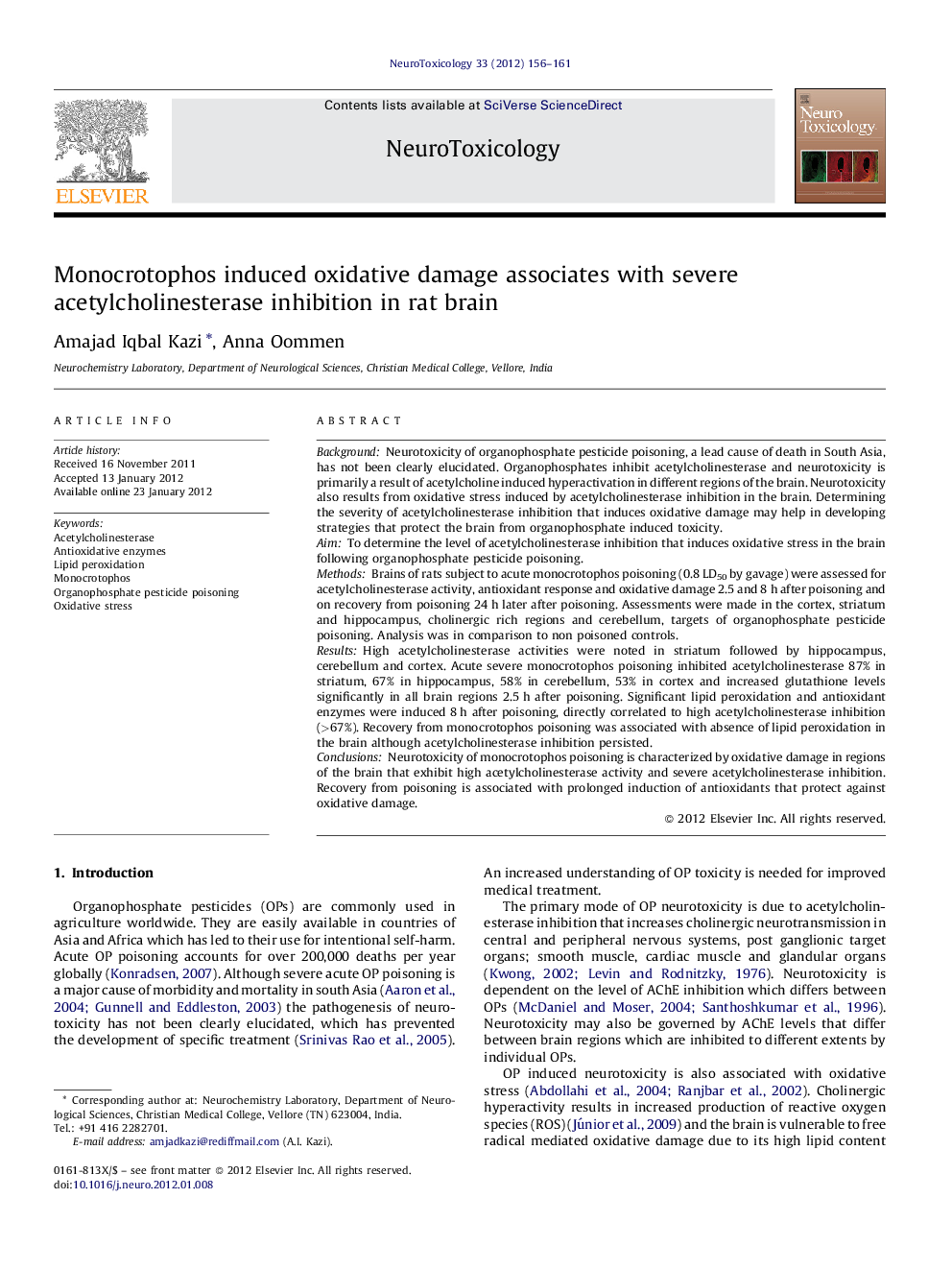| کد مقاله | کد نشریه | سال انتشار | مقاله انگلیسی | نسخه تمام متن |
|---|---|---|---|---|
| 2590343 | 1131736 | 2012 | 6 صفحه PDF | دانلود رایگان |

BackgroundNeurotoxicity of organophosphate pesticide poisoning, a lead cause of death in South Asia, has not been clearly elucidated. Organophosphates inhibit acetylcholinesterase and neurotoxicity is primarily a result of acetylcholine induced hyperactivation in different regions of the brain. Neurotoxicity also results from oxidative stress induced by acetylcholinesterase inhibition in the brain. Determining the severity of acetylcholinesterase inhibition that induces oxidative damage may help in developing strategies that protect the brain from organophosphate induced toxicity.AimTo determine the level of acetylcholinesterase inhibition that induces oxidative stress in the brain following organophosphate pesticide poisoning.MethodsBrains of rats subject to acute monocrotophos poisoning (0.8 LD50 by gavage) were assessed for acetylcholinesterase activity, antioxidant response and oxidative damage 2.5 and 8 h after poisoning and on recovery from poisoning 24 h later after poisoning. Assessments were made in the cortex, striatum and hippocampus, cholinergic rich regions and cerebellum, targets of organophosphate pesticide poisoning. Analysis was in comparison to non poisoned controls.ResultsHigh acetylcholinesterase activities were noted in striatum followed by hippocampus, cerebellum and cortex. Acute severe monocrotophos poisoning inhibited acetylcholinesterase 87% in striatum, 67% in hippocampus, 58% in cerebellum, 53% in cortex and increased glutathione levels significantly in all brain regions 2.5 h after poisoning. Significant lipid peroxidation and antioxidant enzymes were induced 8 h after poisoning, directly correlated to high acetylcholinesterase inhibition (>67%). Recovery from monocrotophos poisoning was associated with absence of lipid peroxidation in the brain although acetylcholinesterase inhibition persisted.ConclusionsNeurotoxicity of monocrotophos poisoning is characterized by oxidative damage in regions of the brain that exhibit high acetylcholinesterase activity and severe acetylcholinesterase inhibition. Recovery from poisoning is associated with prolonged induction of antioxidants that protect against oxidative damage.
► Acute monocrotophos poisoning resulted in differential acetylcholinesterase inhibition in different rat brain regions.
► Neurotoxicity of monocrotophos poisoning is characterized by oxidative damage in regions of the brain that exhibit high acetylcholinesterase activity and severe acetylcholinesterase inhibition.
► Recovery from oxidative damage is associated with prolonged induction of antioxidants.
Journal: NeuroToxicology - Volume 33, Issue 2, March 2012, Pages 156–161